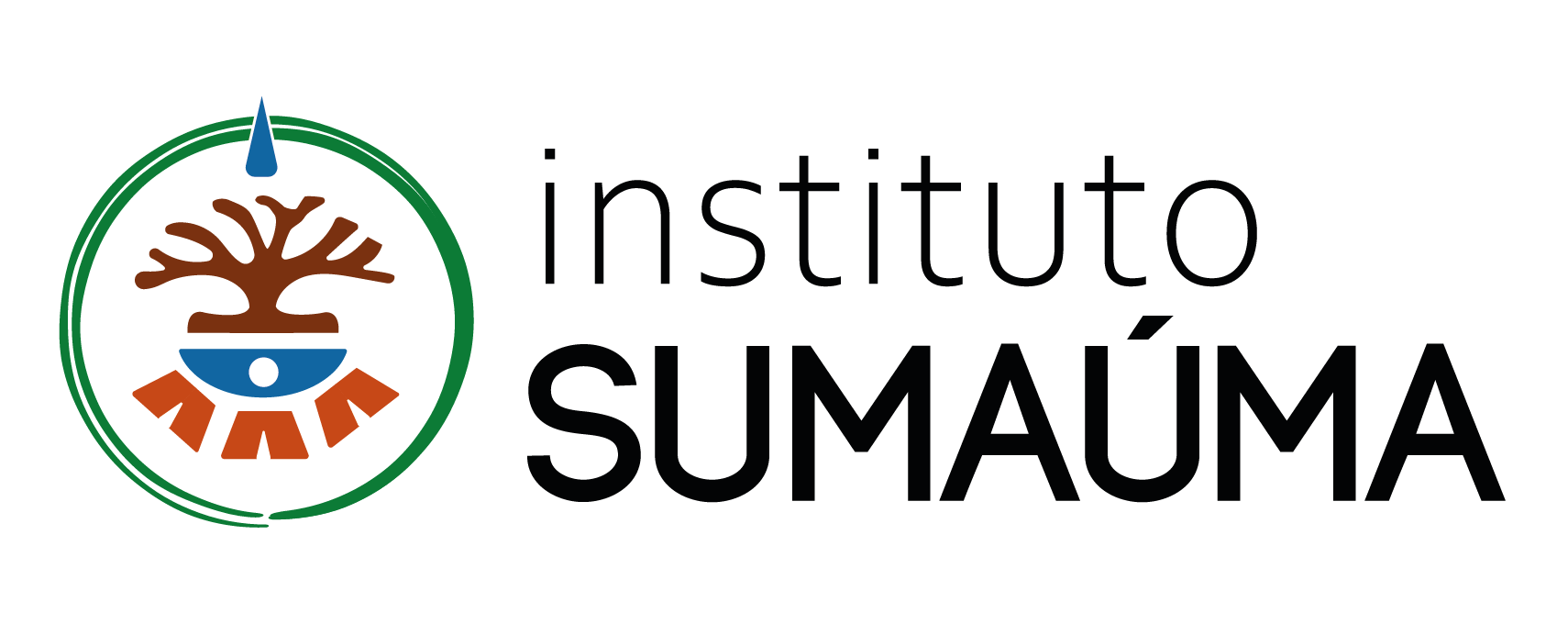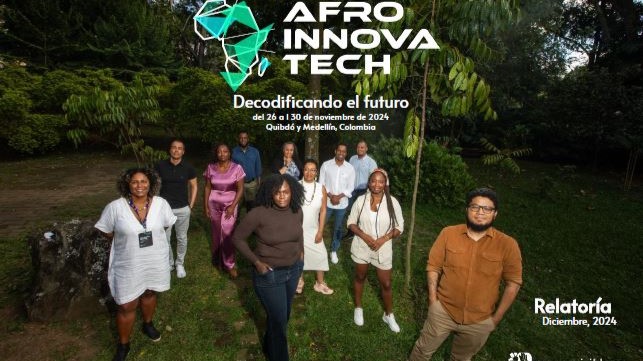Por Taís Oliveira
The Portuguese version is available here!
To continue with the Sumaúma Institute’s 2024 Retrospective, I want to briefly discuss our projects and political advocacy activities.
Since 2023, we have been working with the Sumaúma Lab Program – Interdisciplinary Laboratory of Science, Technology, and Society, which is part of the Research area and aims to produce and promote technical-scientific knowledge based on rigor, ethics, and criticism about complex contemporary phenomena, especially in the relationship between science, technology and society and the impacts on social groups systematically marginalized in the Brazilian context.
Within the scope of this program, we led the Joint Articulation of the federal government’s public call, which, through the Social Communication Secretariat of the Presidency of the Republic and the Ministry of Racial Equality, called on civil society to collaborate in constructing Subsidies for the elaboration of the National Anti-Racist Communication Plan.
This articulation was carried out collectively by 12 civil society organizations, the private sector and research groups, namely: Instituto Sumaúma, Agência Camélia, Elo Negro – Afro-communication agency, Colectiv RP Negres, Muniz Sodré Study Group on Racial Relations (GEMS), Research Group on Anti-racist Communication and Afro-diasporic Thought (CAPA), Research Group on Ethnic-racial Hierarchies, Communication and Human Rights (Rhecados), Instituto DiverCidades, Instituto Omó Nanã, Intervozes – Coletivo Brasil de Comunicação Social and TECLA | Ação Educativa – Consulting, Research and Information.
Alongside providing suggestions on the Participa Mais platform, we have created and made accessible the document titled Support for Preparing the National Anti-racist Communication Plan, which can be found here.
We also represented this group in the “Debate on Civil Society Contributions to the National Anti-Racist Communication Plan“, in Brasília. On this occasion, the Interministerial Working Group received civil society organizations to delve deeper into suggestions for the plan.

Still on the subject of this movement, we attended the roundtable “Anti-Racist Communication in the Public Sector” at the Brazilian Congress of Communication Sciences, held by Intercom. The activity was an initiative of the Research Group on Anti-Racist Communication and Afro-Diasporic Thought and was attended by Marcia Guena (Uneb / GP CAPA), Valmir Araújo (UnB), and Marcelle Chagas (Network of Black Journalists for Diversity in Communication / UFF).
The final report on the Communication Plan for Racial Equality, which resulted from this call, can be accessed here. I will soon share some comments on the final report here.
Also, among the activities of the Sumaúma Lab Program, specifically on the topic of Digital Technologies, we collaborated on the article “Diversity Crisis in Technology,” which is part of the document “Artificial Intelligence and Racial Discrimination in Brazil: Main Issues and Recommendations,” an initiative of IRIS—Instituto de Referência em Internet e Sociedade and a researcher.
The publication addresses data protection, meaningful connectivity, digital sovereignty, digital policies, and other relevant points. It is based on recommendations by Brazilian experts for the United Nations (UN) thematic report.
The following researchers also contributed to this document: Ana Bárbara Gomes Pereira, Allan Gomes, Daiane Araújo, Fernanda Rodrigues, Gabriela de Almeida Pereira, Jéssica Botelho, Juliane Cintra, Pedro Diogo Carvalho Monteiro and Thiane Neves Barros.
Also, on this topic, we attended the G20 Social Summit in Rio de Janeiro for the activity “Racial Discrimination and Artificial Intelligence in the Global South,” proposed by IRIS—Reference Institute for Internet and Society, Instituto Sumaúma, Projeto Nanet (Ação Educativa—Consulting, Research and Information and Abong—Democracy, Rights and Common Goods), and Redes Cordiais.

The panel, which started with the document “Artificial Intelligence and Racial Discrimination in Brazil: Main Issues and Recommendations,” also included a preliminary online conversation, which can be seen below.
In the second half of the year, we held the 5th Edition of the Preparatory Course for Postgraduate Selections, which had black, indigenous, and peripheral people as its priority audience.

In 2024, four more students passed the selection processes for master’s degrees, totaling 16 master’s students in postgraduate programs throughout Brazil and in various areas.
The year 2024 also marked the milestone of our first Master’s degree, the beloved Priscilla Fenics, who was part of the first class of the preparatory course in 2018. Priscilla has a Master’s degree in Humanities, Rights and Other Legitimacies from the University of São Paulo with the research “The voice and face of the Turnaround: Structural Racism in the Cultural Turnaround of the City of São Paulo”.
Again, I thank our masterful team of volunteer tutors Abraão Filipe Oliveira, Fernanda Sousa, Helen Rose Santos, João Raphael da Silva, Lídia Michelle Azevedo, Dra. Lina Moreira, Marcus Vinícius Bomfim, Maria Fernanda Ruas and Tarcizio Silva, and also Beatriz Campos Ribeiro who for the second year in a row, brought us a conversation about mental health, and Hugo Fulni-ô, who talked to the class about the Indigenous movement in the fight for education.
Some of our tutees in this class contributed content related to the course, which is available on our blog and linked below.
- Dreams can be achieved — because they are shared, enhanced and placed under a new perspective, by Ananda Matos
- Report on the class about the black movement in the fight for the right to education, by Alicia Lobato
- Social Transformation Through Amateur Football, by Diego Galofero
- Reflection on Mental Health in the academic context, by Daisy Verneque
- Currículo Lattes: an online portfolio for sharing professional and academic experiences, by Nadja Nayra Ribeiro
The year 2024 was full of activities, collaborations, and achievements. We hope that in 2025, we can go even further!
In the next post, I will let you know about our participation in Events, Scientific Dissemination, and Collaborations in 2024. 😉


